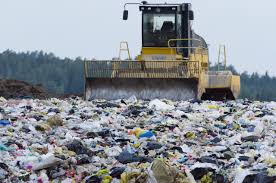
Did you know there is an entire island filled with plastic? Did you know it is 1,600,000 square kilometers (620,000 sq mi)? That is about twice the size of Texas or three times the size of France! It is the Great Pacific Garbage Patch. This is why plastic usage should decrease. The reasons for this are, unlike other materials, plastic does not biodegrade and It can take up to 1,000 years to break down. Another reason is that plastic is derived from fossil fuels, including natural gas and crude oil, and also contains chemicals that are known to threaten human health. The final reason is that plastic does not decompose. Instead, it breaks up into smaller pieces called microplastics. These microplastics are practically everywhere on Earth and pose a deadly problem for wildlife.
The first reason why plastic usage should decrease is that according to the United Nations General Assembly, unlike other materials, plastic does not biodegrade and It can take up to 1,000 years to break down. This means that plastic builds up on our earth because it takes so long to biodegrade, so it pollutes our earth. This means plastic is a very bad thing for our planet.
The second reason why plastic usage should decrease is that according to the University of Colorado Environmental Center, “Plastic is derived from fossil fuels, including natural gas and crude oil, and also contains chemicals that are known endocrine disruptors and threaten human health.” This means that plastic is killing people.
The last reason why plastic usage should decrease is according to University of Colorado Environmental Center. Plastic does not decompose. Instead, it breaks up into smaller pieces called microplastics. These microplastics are practically everywhere on Earth and pose a deadly problem for wildlife. This means that plastic is also killing plants and animals.
This is why plastic usage should decrease. The reasons for this are, unlike other materials, plastic does not biodegrade and It can take up to 1,000 years to break down. Another reason is that plastic is derived from fossil fuels, including natural gas and crude oil, and also contains chemicals that are known to threaten human health. The final reason is that plastic does not decompose. Instead, it breaks up into smaller pieces called microplastics. These microplastics are practically everywhere on Earth and pose a deadly problem for wildlife. For ideas to help decrease plastic use visit What You Can Do to Reduce Plastic Waste | US EPA







